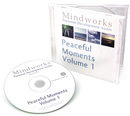

Dealing with Guilt– Do you say “Yes” because you can’t say “No?”Are you dealing with guilt every day? Have you walked away from a conversation thinking that you should have said something else? If only you could have had the guts to say it, or if only you would not have felt embarrassed, guilty or ashamed for even thinking or saying it. You’re not alone. In fact for many of us, the words “should have” “could have” and “would have”, play an integral role in making us say and behave differently. So, if your co-workers, family or friends tell you to stand up for yourself and be more assertive, maybe you should listen. Learning how to be more assertive without dealing with guilt or shame, not only increases your self-confidence, but helps with decision-making as well as communication. And most importantly, you are being true to yourself, as well as increasing the respect that others will have for you.
You Have A Right To Say No Without Feeling GuiltyIf you are in a situation where you know that you should be honest about how you feel or think, these tips can help you to stand up for yourself without feeling shame or guilt:• Ask yourself how you really feel – not how you SHOULD feel. • Have the discussion when you’re in emotional control. • Think of what you want to say and
organize your thoughts positively
• Explain how the specific situation makes you feel; use the words “I feel” at the beginning of sentences. If you say, “You don’t ask me what I want to do when you’re making plans” it sounds like an attack. It’s better to express how you feel about it -- “I feel as though my opinion doesn’t count, when you don’t ask me what I want.” No one can blame you for expressing how you feel. • Be honest and direct regarding your intentions, goals and feelings. • If a demand is unreasonable, say so -- but do not offer an excuse or an apology for saying ‘no’. You’re entitled to say ‘no’ if that’s how you feel. Communication is the Key to AssertivenessLearning how to be more assertive is simply learning how to communicate your feelings (codependents have a particular problem with this), wants and needs in a positive and productive way -- but like everything else, it takes practice. You won’t “win” every time-- and you don't have to. The benefits are greater than that. You’ll feel more confident and in control. You’ll increase your self-respect in the eyes of others, and best of all, you’ll say goodbye to guilt and shame.
Q My partner and I are both 52. He has been a substance abuser (occasional cocaine) until recently (clean 6 months). He has been through rehab (and AA) twice. He agreed to join a program, but didn't. Although he's cleaned up his act, he abuses alcohol. He gets ugly when he drinks more than 3 drinks. He is a musician, and gets free drinks when he plays. A lot of his self-esteem is based on his identity as a musician, so for sure he won't find another job. I was never involved with a substance abuser or alcoholic until now. My dad was an alcoholic, and mom took us to Al Anon when I was a teenager. I'm very aware that substance abuse is about the user's underlying issues. But my problem is with enabling. When does being a designated driver become enabling? When I drive, he is more likely to lose it. Therese
A
When you are a designated driver for someone who is an alcoholic, you're allowing the person to 'let go' -- past the legal limit. In the case of your partner, you're enabling – you’re giving an alcoholic the permission to get drunk. Tell him that you'll gladly drive at any time, but not if any alcohol is involved. Be prepared for an argument, but
hold your ground
Give advice on codependency. What's your experience?.
Native remedies not only has many natural remedies that can be helpful, but they're priced right. You'll find their banners on the site. This is one of them.
Under stress? Relax your mind Relaxation 'Power Naps' (CD or tape) Four 15-minute deep relaxation sessions for that mid-day 'power nap'.
You can download these MP3 immediately -- as well as learn hypnosis for free. Here's where you'll find them Because stress leads to all kinds of addictive behavior, learn to relax and enjoy peace of mind!!
Self-sabotage. Why do we do it. Get tips to stop. Thanks for your input and keep those questions and suggestions coming.
Bev
If you know someone who would appreciate this newsletter, please do both of us a favor and pass it on. If a friend forwarded this newsletter to you and you like what you read, please subscribe
|



